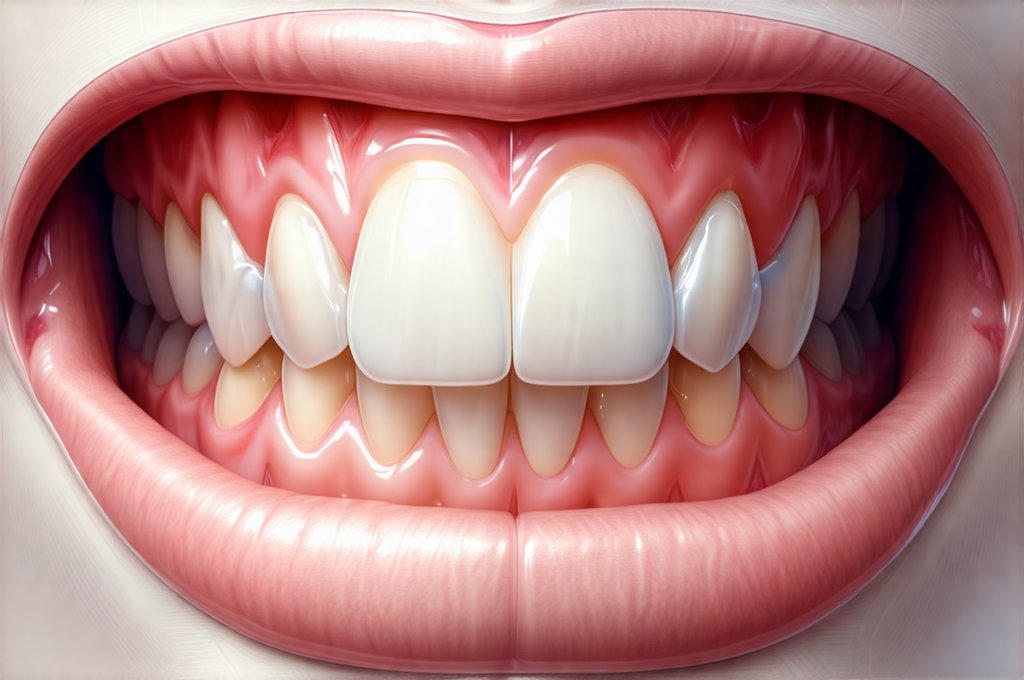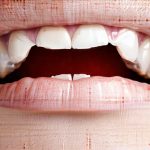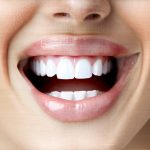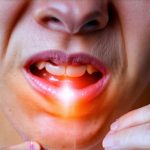Gastroesophageal reflux disease (GERD) is a surprisingly common condition affecting millions worldwide, often characterized by frequent heartburn and acid indigestion. But its reach extends far beyond just the esophagus and stomach. Many people experiencing GERD also find themselves battling seemingly unrelated oral health issues, particularly sore or inflamed gums. This connection isn’t coincidental; the very acids that cause heartburn can – and frequently do – impact the delicate tissues within your mouth. Understanding this relationship is crucial for both managing GERD symptoms and maintaining optimal oral health.
The link between GERD and gum health often goes unnoticed because the oral manifestations are subtle or attributed to other causes, such as poor dental hygiene. However, chronic acid exposure can significantly weaken enamel, irritate gums, and even contribute to conditions like gingivitis. Recognizing these connections allows for a more holistic approach to healthcare, addressing the root cause – GERD – alongside its secondary effects in the mouth. This article will delve into how stomach acid impacts oral tissue, exploring the mechanisms involved, potential consequences, and strategies for protecting your gums while managing food fear.
Understanding Acid Reflux and Oral Health
Acid reflux occurs when stomach acid flows back up into the esophagus. In occasional, mild cases, this isn’t usually a major concern. However, with GERD, the frequency and severity of these episodes increase, leading to inflammation and potential damage. This acidic backwash doesn’t always stop at the esophagus; it can travel further, reaching the mouth during sleep or when lying down. The oral cavity is particularly vulnerable because its tissues are not designed to withstand frequent exposure to such a corrosive substance.
- The pH level in your mouth is normally slightly alkaline (around 7), creating an environment that supports healthy teeth and gums.
- Stomach acid, on the other hand, has a very low pH—often below 3—making it highly acidic.
- Repeated exposure to this acidity disrupts the natural balance of oral tissues.
The impact isn’t immediate or dramatic for everyone. For some, it’s a slow and insidious process that gradually erodes enamel and irritates gums over time. Others might experience more noticeable symptoms like burning sensations in the mouth, increased tooth sensitivity, or even lesions on the gums. It’s important to remember that oral health issues stemming from GERD can mimic those caused by other problems, making accurate diagnosis essential. A comprehensive evaluation by both a dentist and gastroenterologist is often needed to establish the connection and develop an appropriate treatment plan. Understanding enzyme deficiency can also help pinpoint underlying issues.
The type of acid reflux also plays a role. Some individuals experience primarily liquid regurgitation, while others have more gaseous reflux. Liquid reflux tends to be more damaging to enamel due to its direct acidic contact with teeth, whereas gaseous reflux might contribute more to gum irritation through changes in the oral environment and potential inflammation. Ultimately, both types of reflux can negatively affect oral health if left unmanaged.
How Acid Impacts Gum Tissue Specifically
Gums are exceptionally sensitive to pH changes. They contain delicate tissues that rely on a stable environment for optimal function. When exposed to stomach acid, several adverse effects can occur:
- Inflammation: Acid irritates the gum tissue, triggering an inflammatory response. This leads to redness, swelling, and tenderness. Chronic inflammation weakens gums and makes them more susceptible to infection.
- Erosion of Gum Tissue: Prolonged acid exposure can actually erode the surface layers of the gums, causing recession (where gums pull back from teeth). This exposes tooth roots, increasing sensitivity and risk of decay.
- Disruption of Oral Microbiome: Acid alters the balance of bacteria in the mouth, potentially leading to an overgrowth of harmful microbes that contribute to gum disease (gingivitis and periodontitis).
The gums are also more vulnerable during sleep because saliva production decreases. Saliva acts as a natural buffer against acid, neutralizing it and rinsing it away from teeth and gums. Without adequate salivary flow, the effects of reflux can be intensified overnight. Maintaining good oral hygiene is crucial, but it’s often not enough to counteract the damage caused by chronic acid exposure without addressing the underlying GERD. Consider how stress can exacerbate these conditions.
Furthermore, the immune response within the gum tissue itself can become compromised with repeated acidic attacks. This weakens its ability to fight off infections and repair damaged tissues. The result is a vicious cycle where inflammation, erosion, and infection reinforce each other, leading to progressively worsening gum health.
Recognizing the Signs: What to Look For
Identifying GERD-related gum problems requires careful observation and awareness. While many symptoms overlap with those of typical gum disease, there are clues that suggest acid reflux as a contributing factor:
- Persistent Burning Sensation: A constant burning sensation in your mouth, particularly at the back of your throat or on your gums, even when you don’t have heartburn is a red flag.
- Increased Tooth Sensitivity: Sudden increase sensitivity to hot, cold, or sweet foods and drinks can indicate enamel erosion caused by acid. This often precedes noticeable gum issues.
- Gum Recession: Noticeable pulling back of gums from teeth exposing more root surface.
- Chronic Bad Breath: While bad breath has many causes, GERD-related acid reflux can contribute to it due to changes in the oral microbiome and inflammation.
It’s important not to dismiss these symptoms as minor inconveniences. If you experience any combination of these signs alongside frequent heartburn or indigestion, consult both a dentist and gastroenterologist for a comprehensive evaluation. Early diagnosis is key to preventing significant damage to your teeth and gums. Understanding allergy versus intolerance can also help rule out other causes.
The dental examination should include a thorough assessment of gum health (checking for inflammation, bleeding, and recession), as well as an evaluation of enamel condition. The gastroenterologist may recommend tests such as endoscopy or pH monitoring to confirm GERD diagnosis and assess its severity. A collaborative approach between these two healthcare professionals is the most effective way to manage this complex relationship.
Strategies for Protecting Your Oral Health with GERD
Managing GERD effectively is the cornerstone of protecting your gums. This often involves a multi-faceted approach that combines lifestyle modifications, medication (as prescribed by a doctor), and proactive oral care:
- Dietary Changes: Avoiding trigger foods (spicy foods, citrus fruits, caffeine, alcohol) can reduce acid production. Eating smaller, more frequent meals can also help.
- Lifestyle Adjustments: Elevating the head of your bed while sleeping can minimize nighttime reflux. Avoid eating within 2-3 hours before bedtime. Losing weight if you are overweight or obese can also significantly improve GERD symptoms.
- Medication: Your doctor may prescribe medications like proton pump inhibitors (PPIs) or H2 receptor antagonists to reduce stomach acid production.
In addition to addressing the underlying GERD, several oral care strategies can help mitigate its effects:
- Fluoride Treatments: Fluoride strengthens enamel and makes it more resistant to acid erosion. Your dentist may recommend fluoride toothpaste, mouthwash, or in-office treatments.
- Neutralizing Mouthwashes: Using a mouthwash that neutralizes acids (containing ingredients like xylitol) after meals can help restore oral pH balance.
- Gentle Brushing Technique: Avoid aggressive brushing, which can further erode enamel and irritate gums. Use a soft-bristled toothbrush and gentle circular motions. Regular dental checkups are essential. The connection between GERD and your throat is also important to consider.
This holistic approach – addressing both the GERD itself and its impact on your mouth – is crucial for maintaining long-term oral health and overall well-being. It’s about understanding the connection, taking proactive steps, and working closely with your healthcare team to develop a personalized management plan that works best for you. And remember, gut health is foundational to overall well-being.


















